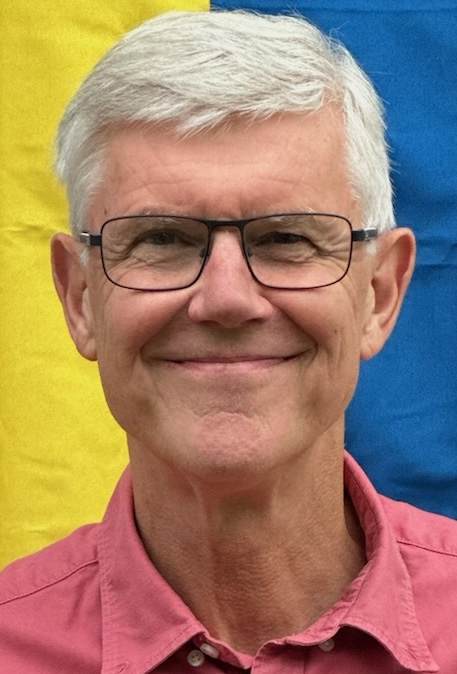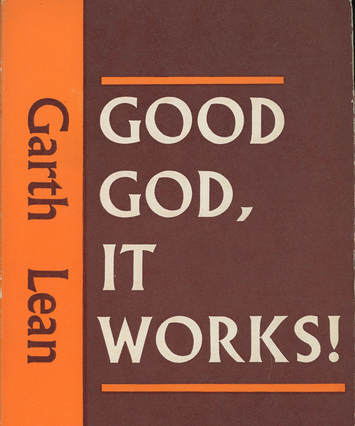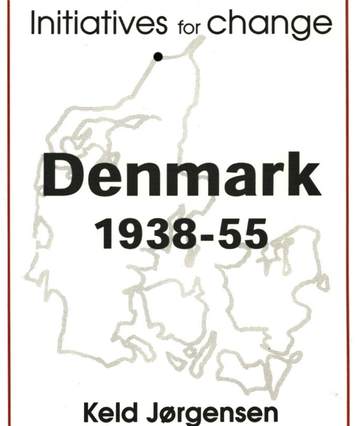Along with over 90 from the Nordic countries and beyond, I recently attended an Initiatives of Change gathering near the Danish border with Germany. This border area has seen many conflicts over the past few hundred years but is now a living witness to the possibility that enemies can become friends.
During the gathering, a prominent journalist explained some of the background to a complex piece of history. Siegfried Matlok is former Editor-in-Chief of the newspaper Der Nordschleswiger and still a highly regarded authority on matters to do with Schleswig and Danish-German relations.
The British statesman Lord Palmerston is reported to have said: "Only three people have ever really understood the Schleswig-Holstein business – the Prince Consort, who is dead – a German professor, who has gone mad – and I, who have forgotten all about it."
Two wars in 1854 and 1864 led to German hegemony over most of Schleswig, but after Germany's defeat in World War One the current division of Schleswig into a northern Danish part and a southern German part was established. This led to sizeable minorities in each part, with continuing friction between the two peoples.
At the Nordic gathering, we heard from a Dane of German origin, Urte Hvidt, now in her late 80s. During World War Two, at the age of seven, she and her siblings were taken by their mother to Flensburg in Schleswig to escape the war in Hamburg, while their father was working as a doctor at the battlefront. At the German school, she experienced hostility from the children at the Danish school. After the war, the family was reunited. By then her mother had become an independent woman and the old roles in the family did not work. Divorce was close but through a meeting with IofC's forerunner Moral Re-Armament (MRA), her parents were helped to find their way back to each other. They bought a large house with 17 rooms on the Danish side of the German border to create a meeting place - "a place of reconciliation" - where different people could come and live.
They must have had a small but real part, I thought, in changing the atmosphere in Schleswig towards what it is today.
A turning point came in 1955 when the Bonn Copenhagen Declarations established the rights of both German and Danish minorities. Each person was given freedom of choice as to which culture to belong to. New respect developed to the point where, today, there is close cross-border cooperation, for example student exchanges. A local politician from the German minority in a town near where our gathering was held was recently elected mayor of the (Danish) town.
I turned to the For A New World platform for more information about the 1955 accord, as I had heard that Moral Re-Armament may have had a small part in building the necessary trust between some key politicians on both sides of the divide. I found some of the answers in books by Keld Jørgensen - Denmark 1938-1955 - and Garth Lean - Good God, It Works!.
"In 1953," Jørgensen explains, "Germany brought in a new election law which denied seats in the regional and national parliaments to political parties which gained less than five per cent of the vote. This 'five per cent clause' was applied in the elections to the Schleswig-Holstein Parliament in the autumn of 1954. The party representing the Danish minority won 3.5 per cent of the total vote and was therefore excluded from Parliament, even though 42,242 people had voted for it. But the German minority in Denmark, which had only won 9,721 votes in the most recent election, was represented in the Danish Parliament. This apparent injustice fuelled animosity in Denmark towards Germany."
According to an article in the Danish daily Jyllandsposten on 24 April 1962, the first Danish-German contacts which led to the Bonn-Copenhagen Declarations began at Caux (the Moral Re-Armament conference centre in Switzerland).
At the height of the crisis, Ole Bjørn Kraft was invited to a dinner at the home of Christian Harhoff, a shipowner who had played such a role in bringing people together during the German occupation. Kraft was leader of the opposition Conservative Party and a recent Foreign Minister. Keld Jørgensen and Garth Lean, together with their wives, were also at the dinner. "Kraft had just attended an international MRA conference," writes Jørgensen, "where he had seen evidence of reconciliation between people in France and leaders in Morocco and Tunisia, which were now on the verge of independence. He said that the turning point seemed to have been the inspiration some of these people had found when they had 'sought God's way' in quiet. One of those present asked, 'Why not try it in this situation with Germany?'"
Out of this time of quiet the thought emerged that "it might be helpful if Kraft could meet Heinrich Hellwege, a German Cabinet Minister who had also been to Caux, although the two men had never met. The meeting was arranged and, after getting the Danish Foreign Minister's support, Kraft set out for Hamburg, accompanied by Garth Lean. ... After talking about all the issues involved, the two men were quiet together, seeking inspiration from God. Then Hellwege said, 'We Germans, who have wronged Denmark deeply, must take the initiative.'"
Garth Lean takes up the story: "Hellwege set off immediately after lunch for Bonn. He saw Chancellor Adenauer on arrival and the Chancellor, who had already experienced the help of Caux in reconciling France and Germany, took immediate action." The Danish government received an invitation to send a delegation to negotiate in Bonn. "Negotiations followed, and came to a happy conclusion on March 29th. The solution has been officially described as 'one of the most, perhaps the most, significant event in Danish foreign policy in the fifties', and, as lately as May 27th, 1969, Minister President von Hassel of Schleswig-Holstein claimed that the agreement was the most liberal to be found anywhere in the world (*Berlingske Tidende*)."
"Kraft is anxious not to exaggerate the importance of his initiative," concludes Lean, "but it does seem to have played a significant part at an important moment."



